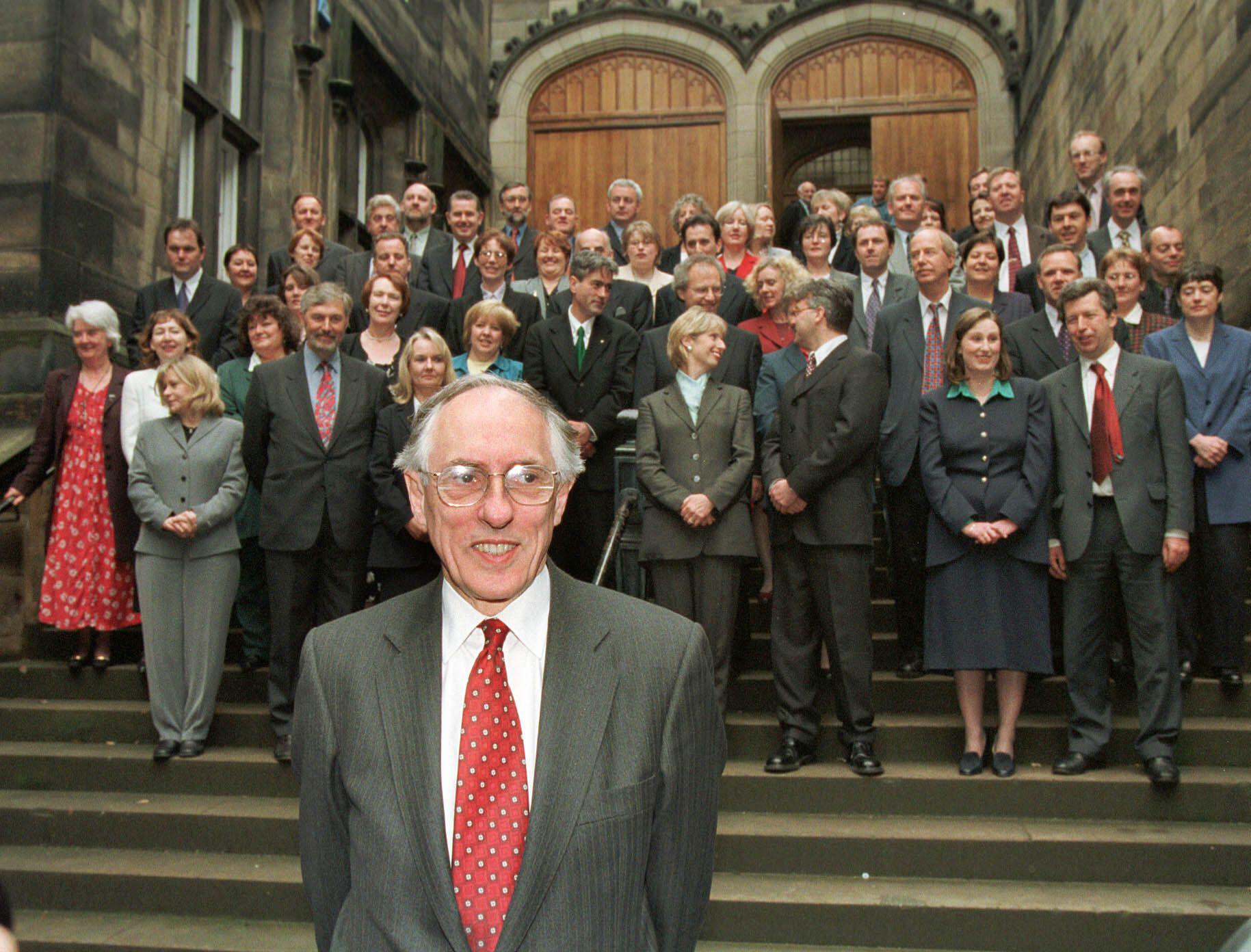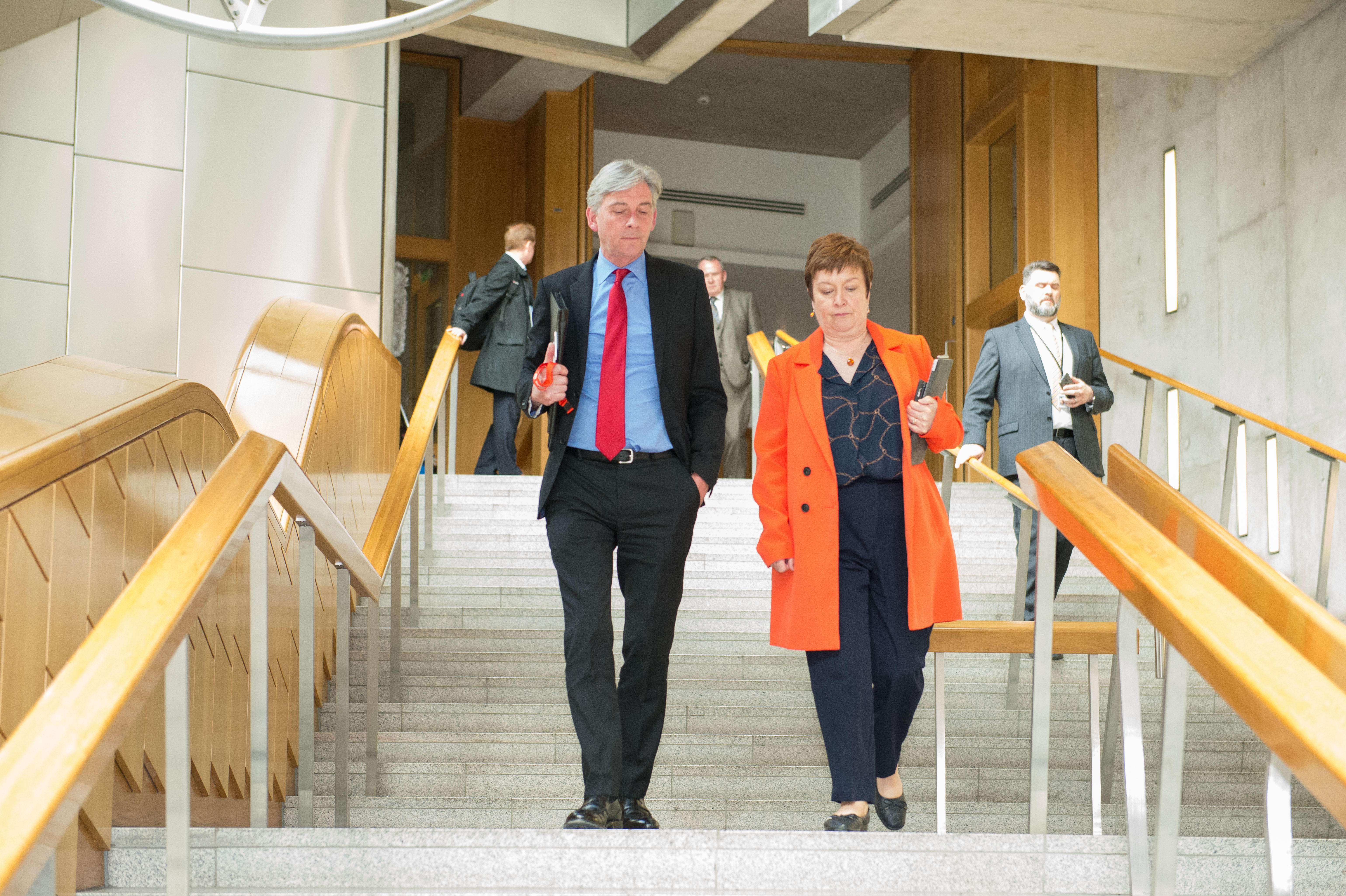Rhoda Grant: 'Of course I'll miss being an MSP. And that scares me.'
In an Exit Interview with Holyrood, Rhoda Grant explains her reasons for leaving the Scottish Parliament, what she's learned, and why it's so hard to step away.
“Being an MSP has been just fascinating. We see the best and we see the worst, in a way; people are always keen to tell you what they’re doing and there are some wonderful things going on all around, but you also are there to represent people and you get people coming to you who have real concerns about what’s going on in their lives, and that’s quite hard some of the time. During Covid you had much more of that, and you weren’t doing the nice things – going out and seeing what was working. You just saw where people were really toiling. I don’t see any other walk of life where you get that same insight.
“I’ve announced that I’m standing down because I needed to make a decision at this point about whether I would put myself forward for another five years. If I did, I would end up well into my 60s, away from home, covering an area the size of the Highlands and Islands. If I’m honest, I’m finding that exhausting and I’m thinking, how long can I physically be doing that and doing it to the way that I would want to do it? I could tread water or cut down, but I don’t think that would be something I would want to do. For my own peace of mind, I need to be doing well or not doing it at all.
“I’ve held a lot of different party roles and a lot of it has been really enjoyable. You get caught up in things that you never even knew existed. You kind of build an expertise. Early on in my parliamentary career there was a big outbreak of toxins in shellfish, and because this was impacting on jobs and livelihoods in my area I had to get to understand it. I remember thinking, ‘I didn’t expect to be an expert on shellfish’. Once you get that kind of level of insight into a subject, everything is fascinating.
“My biggest achievement was probably when I put through my Domestic Abuse (Scotland) Bill, which was passed in 2011. To put through legislation is a huge personal achievement but also an achievement for all those that were involved, because you obviously don’t do that on your own, you’re working with other people.
“I always say I’ve got three wee letters after my name that, if you play canny, you can use a bit like a magic wand. Because you’ve got those three wee letters, when you get in touch with people they tend to sit up and take notice. That seems to open doors or cut through guff. It’s like wading through porridge, but those three letters make the porridge a bit more runny.
“I was in the first parliament in 1999 and on my first day I was kind of a bit like, wow. I hadn’t expected to be elected – I thought where I was, I wouldn’t be, so it did feel really surreal. Rhoda Grant with first minister Donald Dewar and colleagues, 1999 | Alamy
Rhoda Grant with first minister Donald Dewar and colleagues, 1999 | Alamy
“You’re up until all hours for counts, then suddenly your doorbell is ringing because the parliament has sent you a huge box with information, and you’re getting emails saying you need to be in Glasgow for party stuff. It’s pretty momentous and it was almost overwhelming; it happened so quickly. I suppose nobody really is prepared for that.
“The parliament was in the process of being set up, and we had a huge amount of mail and expectation. Nobody dives in even now, but at least there’s structure there. We had to vote through even what we were allowed in offices – all of that had to happen afterwards. We didn’t have staff and even finding a place to work was difficult. We eventually just commandeered an office, and we got a member of staff from an agency, and just thought, to hang with it. I was in with party colleagues Maureen Macmillan and Peter Peacock, and having them there made it easier. I was pretty green, and we worked closely and were making it up as we went along.
“I’m not sure how the job has changed me because you always think you’re the same person, but others may differ on that. I suppose I’ve got a huge amount more awareness of what happens for other people and I am possibly much more likely not to jump to conclusions because of the insight into other people’s situations. I’m more wary, because anything you do can be someone else’s headline, and I’m less likely to be swept up by those.
“Every parliament has its own personality; that’s one thing I’ve found. I had a few years out when I wasn’t in the second parliament, and I remember coming back and thinking, this feels like when you leave home for the first time and your parents have redecorated your bedroom. It’s familiar, but it’s moved on without you. Every parliament you come back to is a bit like that, because it’s the people that make the parliament – their attitudes and how they use the parliament. With experience, you have more confidence and you’re better able to navigate that. You get a lot more coming at you: the longer you’ve been here, the more people know your name.
“Compared to everybody else, MSPs are well-paid; compared to other institutions, we’re not. But would that stop someone becoming an MSP? You’d have to have a very good standard of living if that was going to stop you. And if you have that standard of living, you can afford to take a pay cut. I’m more concerned with councillors. For the work they do, they’re paid pretty poorly. It’s all-consuming, and you can’t really do it on a part-time basis. Compared to that, we are fine. I’m not one of those that thinks we should never take a pay rise again, because then your pay falls and falls and falls, but we’re not in that situation now.
“To improve the job, I could do with a helicopter. That’s region-specific – it’s a huge area and I love representing it, but I wish there were five of me that could go around. I could do with more staff. We had allowances increased for that, but there are more powers devolved now so myself and my staff are working incredibly hard but we have a frustration that there are things we just can’t touch.
 With Richard Leonard in 2019 | Alamy
With Richard Leonard in 2019 | Alamy
“Possibly the parliament should be bigger as well, because I don’t think the right amount of scrutiny goes on. Committees are incredibly busy and we’re missing things, but we don’t have the people to do that properly. As the responsibilities grow, the parliament should grow. My big frustration just now is that nothing seems to happen, and I don’t know if that’s because government is overwhelmed. Part of my standing down is you run out of energy when you feel you’re hitting your head against a brick wall all the time, and you see huge need out there, and you’re frustrated in your attempt to do something about it.
“Will I leave politics when I stand down? Will politics leave me? I think I’ll still be interested and involved locally. I’ll be an active party member and campaign for others. I won’t miss being away from home for long periods of time. The mundane and the ordinary, you just don’t get a chance to do. Other people take that for granted.
“My advice for new MSPs is have a plan, I guess: make time for yourself and your family. You have to be careful not to be an MSP forever and become the most boring person everybody knows. You have to make time to have a social life and if you have a hobby, hang on to it for dear life. Try and protect your life outside politics because that life will shrink because of the demands. Try very hard to have something where you can put your brain into neutral and be yourself. I swim, which I lost when I first got elected because it became too difficult to fit it in, but I have taken it up again and made it a priority. It’s great for your headspace.
“It’s just a huge privilege to have the role, so make the most of it. Make change, make things better. Use the three wee letters after your name to do that.
“I will miss it, of course I’ll miss it. And that kind of scares me.”
Holyrood Newsletters
Holyrood provides comprehensive coverage of Scottish politics, offering award-winning reporting and analysis: Subscribe